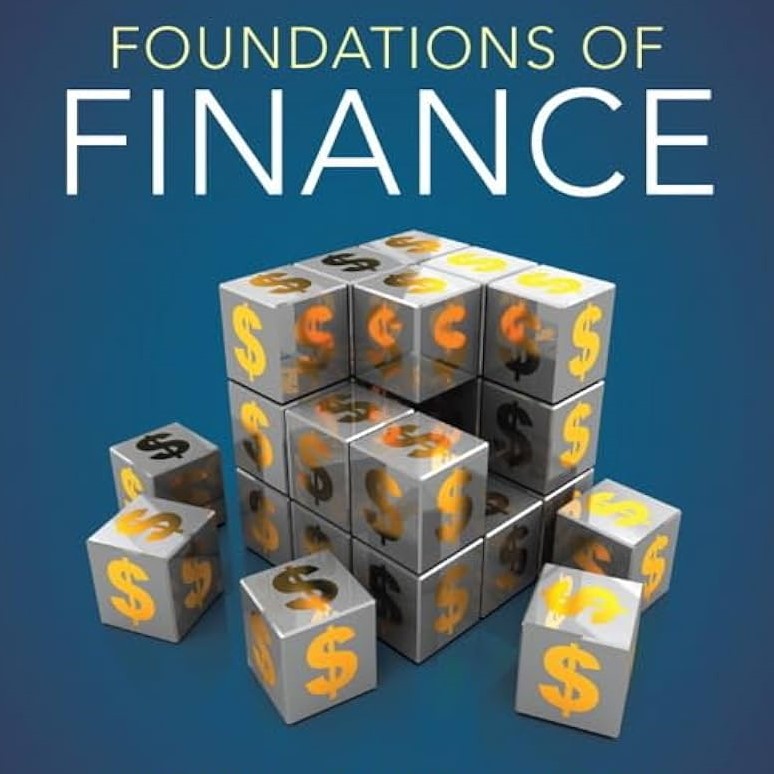Description
The “Foundations of Finance” course provides a comprehensive introduction to finance’s fundamental principles and practices. It is designed for students new to the field and aims to equip them with the tools and knowledge required to understand and engage with financial concepts effectively. The course covers a broad range of topics, from basic economic principles to more advanced concepts, providing a solid grounding for further study or professional application in finance.
Course Objectives:
- Understand Financial Concepts: Grasp the core principles of finance, including the time value of money, risk and return, and financial decision-making processes.
- Financial Analysis: Develop the ability to analyze financial statements and evaluate financial performance using key metrics.
- Investment Fundamentals: Learn about various investment options, portfolio theory, and the principles of asset valuation.
- Corporate Finance: Gain insights into capital budgeting, financing decisions, and managing financial resources within organizations.
- Risk Management: Understand different types of financial risks and strategies to manage them effectively.
Course Content:
- Introduction to Finance:
- Definition and scope of finance
- Overview of financial markets and institutions
- Financial system structure and function
- Time Value of Money:
- Concept of present and future value
- Discounting and compounding
- Annuities and perpetuities
- Financial Statements and Analysis:
- Understanding balance sheets, income statements, and cash flow statements
- Ratio analysis and financial performance metrics
- Financial statement forecasting
- Investment Fundamentals:
- Types of financial instruments (stocks, bonds, mutual funds, etc.)
- Principles of risk and return
- Asset pricing models (CAPM, APT)
- Corporate Finance:
- Capital budgeting and project evaluation techniques (NPV, IRR, Payback Period)
- Financing options and cost of capital
- Capital structure and dividend policies
- Risk Management:
- Types of financial risks (market risk, credit risk, operational risk)
- Hedging strategies and risk management tools
- Use of derivatives in risk management
- Ethics and Professional Standards:
- Ethical considerations in financial decision-making
- Professional standards and practices in finance
Teaching Methodology:
The course employs a combination of lectures, case studies, group discussions, and practical exercises to ensure a deep understanding of financial concepts. Real-world examples and current financial news are incorporated to provide context and relevance. Students will engage in problem-solving activities, economic modeling, and analysis to apply theoretical knowledge to practical scenarios.
Assessment:
Evaluation in this course typically includes:
- Exams and Quizzes: To assess understanding of key concepts and principles.
- Assignments and Projects: Practical tasks that involve financial analysis, case studies, and financial modeling.
- Participation: Engagement in class discussions and group activities.
Target Audience:
This course is ideal for undergraduate students pursuing a degree in business, finance, or related fields and professionals seeking to broaden their understanding of finance. No prior finance knowledge is required, though a basic understanding of mathematics is beneficial.






Rukaiya –
“This course was a game-changer for me. Instructor’s deep expertise and clear explanations made the complex world of financial analysis accessible and manageable. The hands-on exercises and real-world case studies brought the concepts to life, enabling me to develop the skills I needed to make informed financial decisions. I highly recommend this course to anyone looking to advance their financial literacy or pursue a career in the field.”
Justina –
“Introduction to Financial Analysis” has been an incredibly valuable course that has exceeded my expectations. The content was comprehensive, providing an in-depth understanding of the fundamentals of financial analysis. The instructor was exceptional, presenting complex concepts in a clear and engaging manner. The assignments and projects challenged me to apply my knowledge and develop practical skills. I highly recommend this course to anyone seeking to enhance their understanding of financial analysis and make informed financial decisions.”
Tabitha –
“This ‘Introduction to Financial Analysis’ course was an eye-opening experience. The instructor’s expertise and clear explanations made complex financial concepts accessible and engaging. The interactive exercises and case studies allowed us to apply our newfound knowledge practically. The course has greatly enhanced my understanding of financial analysis and has equipped me with valuable skills for my professional development.”
Iyabo –
“This course was an excellent introduction to the world of financial analysis. I gained a comprehensive understanding of the key concepts, tools, and techniques used to analyze financial statements and make informed investment decisions. The instructor’s expertise and passion for the subject made the learning process engaging and informative. The course materials were well-structured and provided numerous examples, which greatly enhanced my understanding. Overall, I highly recommend this course to anyone looking to gain a solid foundation in financial analysis.”